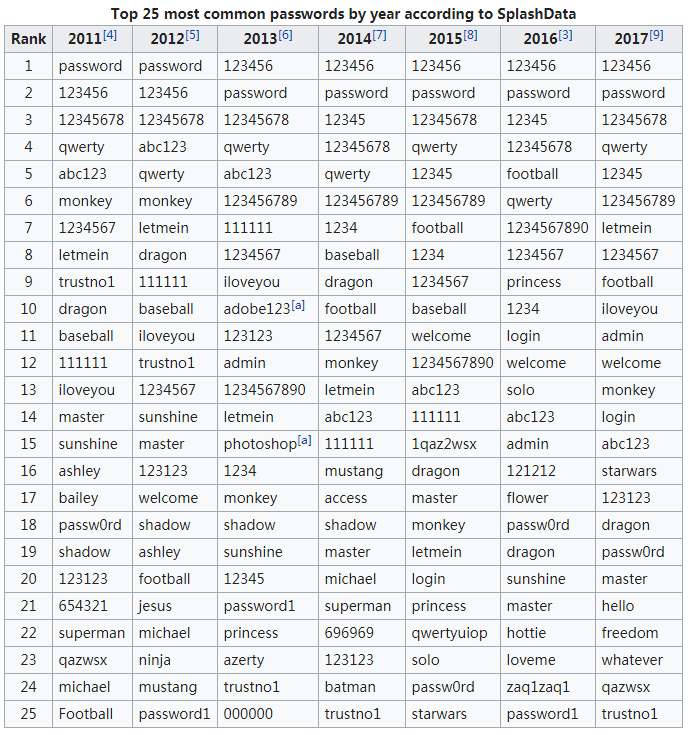 If I told you “123456″ was the most commonly used password of 2017, would you be surprised? Well, don’t be! Recently mobile security company SplashData released their annual list of the 25 most common passwords found on the internet in 2017, their main source for the survey being the cyber attack in October that hit Adobe targeting almost 38 million users. The list of 25 revealed some shocking results of passwords that some would think are extremely too obvious to ever be used including ones like “qwerty”, “abc123″, and even #2 on the list, “password”.
If I told you “123456″ was the most commonly used password of 2017, would you be surprised? Well, don’t be! Recently mobile security company SplashData released their annual list of the 25 most common passwords found on the internet in 2017, their main source for the survey being the cyber attack in October that hit Adobe targeting almost 38 million users. The list of 25 revealed some shocking results of passwords that some would think are extremely too obvious to ever be used including ones like “qwerty”, “abc123″, and even #2 on the list, “password”.

“Why would anyone ever use a password that easy”, you might be asking. Well, on one hand it is slightly understandable if you think about it; almost every website you go to nowadays asks you to sign-up and/or sign-in when using the site. Many people have a difficult time remembering all these passwords (especially to sites they don’t use on a regular basis), so they opt for something quick and easy to remember. However, adopting a strong password is highly encouraged to all internet users to lower the security risk of someone accessing their personal information.
The list of 25 is also a little surprising due to the fact that many websites themselves have adopted stronger password creating policies. Now on many websites when creating a password, users are required to use a minimum of eight characters, must use a combination of letters, numbers and special character(s), and some sites even have an indicator to inform users how weak/strong the password they’re trying to create actually is.
Quick Tip
Security experts recommend using random letter/number/character combinations as passwords. Though these can sometimes be difficult to remember, experts also recommend the use of phrase passwords, a combination of words that can stick out in memory such as “ballfootbasket”. It is also recommended not to use the same passwords and usernames for multiple websites.
RELATED: How to Create a Strong Password
For some strange reason, many internet users are either not aware of how weak their passwords are, or simply do not believe there is any risk in having a weak one. With more and more of our everyday lives taking place online, this is not very wise and can be detrimental down the line.